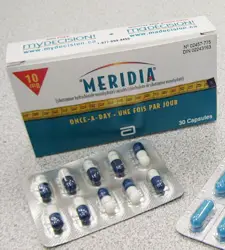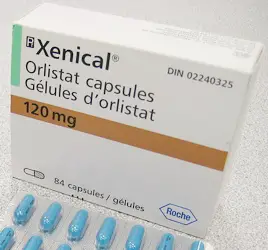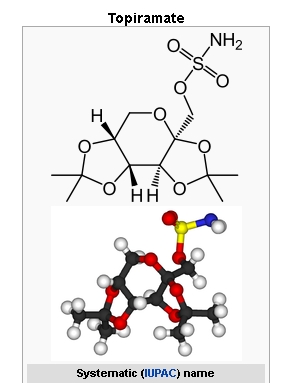
Prescription Diet Pills 2013
Introduction - Prescription Diet Pills 2013The world of prescription diet pills was rocked to its core by the controversial Fen-Phen drugs which triggered lawsuits and long term side effect nightmares for many who took the weight loss drugs back in the early 2000s. Ditto with Redux which was linked with serious heart problems and pulled off the market.
Popular appetite suppressant Meridia (Reductil, Meridia and Sibutrex), a centrally-acting serotonin-norepinephrine reuptake inhibitor structurally related to amphetamines (although its mechanism of action was distinct) was withdrawn from the United States and Canadian markets in October 2010 due to serious cardiovascular concerns.
Over-the-counter remedies such as ephedra has been deemed as dangerous, if not more so then Fen-Phen. It was linked with many deaths including the high profile death of Baltimore pitcher Steve Bechler.
Diet Pills As Of 2003
In 2003 diet pills slipped into the closet even though they continued to be prescribed somewhat on the downlow by some physicians concerned with treating obesity.
More than 50% of people living in the United States are considered overweight. Many people struggling with weight problems haven't investigated taking prescription diet pills since effective formulas have historically proven dangerous due to the many serious side effects.
In some regards prescription diet drugs have remained a well-kept secret over the years since the Fen-Phen and Meridia related problems.
Fast forward to 2013 and the prescription diet pill industry is getting ready to make a big comeback with the introduction of two new prescriptions designed to address weight loss, Belvig and Qsymia (Qnexa) which are both designed to assist with appetite control and suppression. It's important to note that Osymia, unlike Belvig, is a combination of Phentermine + Topiramate (Topamax).
Belviq To Be Available On Weight Loss Market In June 2013
Arena Pharmaceuticals recently disclosed the US Drug Enforcement Agency has listed its Belviq drug (ADP356, Lorcaserin, Lorqess), on as a Schedule IV controlled substance, which means the medication has a low potential for abuse. It's expected that Belviq should start appearing in pharmacies some time in June.
On 27 June 2012, the FDA officially approved Lorcaserin, an antidepressant with serotonergic properties for use in the treatment of obesity for adults with a BMI equal to or greater than 30 or adults with a BMI of 27 or greater who "have at least one weight-related health condition, such as high blood pressure, type 2 diabetes, or high cholesterol."
Off -Label Use Of Prescriptions To Assist With Weight Loss
The diet pill market includes drugs originally developed to treat other medical condition (off-label use), such as depression, diabetes and seizures, but have been found to help with weight loss challenges.
Popular Prescription Drugs Available In 2013
Some of the most popular prescription drugs medical doctors use to help patients lose weight include the following:
1. Phentermine - (Adipex P (immediate release), Adiphene (India), Anoxine-AM, Ionamin (slow-release resin, Australia, discontinued in the US), Duromine (slow-release resin, New Zealand, Australia and South Africa), Metermine (slow-release resin, Australia), Mirapront, Obephen, Obermine, Obestin-30, Phentremine, Phentrol, Phenterex, Phentromin, Pro-Fast SA, Qsymia (with topiramate), Redusa, Panbesy, Phentermine Trenker, Obenix, Oby-Trim, Teramine, Zantryl, Sinpet (MX), Supremin (PH), Suprenza (orally disintegrating tablet), Umine (NZ), Weltmine (KP).
Phentermine is an appetite suppressant. It's not approved for long term use. The drug is a contraction of phenyl-tertiary-butylamine. It's a psychostimulant drug of the phenethylamine class, with pharmacology similar to amphetamine.
Generally approved for short term use (up to 12 weeks) to help reduce weight in obese patients when combined with exercise, diet and behavior modification. It's typically prescribed for individuals who are at increased medical risk because of their weight and works by helping to release certain chemicals in the brain that control appetite.
It may also cause palpitations, restlessness and insomnia. Additionally, phentermine has the potential to cause psychological dependence.
2. Qsymia (Qnexa) - Phentermine + Topiramate (Topamax) - Appetite suppressant with anticonvulsant.
3. Xenical - (Orlista, Tetrahydrolipstatin) is a drug designed to treat obesity. Sold over-the-counter as Alli Appetite suppressant. Blots fat absorption, may cause unpleasant side effects including uncontrollable diarrhea used by people eating a high fat diet.
4. Bupropion (Wellbutrin) - Antidepressant with weight loss benefits often used to help users stop smoking. A recent meta-analysis of anti-obesity medications pooled the results of three double-blind, placebo-controlled trials of bupropion.
It confirmed the efficacy of bupropion given at 400 mg per day for treating obesity. Over a period of 6 to 12 months, weight loss in the bupropion group (4.4 kg) was significantly greater than in the placebo group (1.7 kg).
The same review found the differences in weight loss between bupropion and other established weight-loss medications, such as sibutramine, orlistat and diethylpropion, not to be statistically significant. Combinations of bupropion and zonisamide (Empatic) and of bupropion and naltrexone (Contrave) are currently being studied for obesity.
5. Topiramate (Topamax) - Anti-seizure drug triggers weight loss. May have side effects including tingling sensations in fingers and toes, memory loss and fatigue.
6. Glucophage (Metformin) - Drug works by suppressing glucose production by the liver - Diabetes drug which may aid weight loss in some patients.
7. Glyset (Miglitol) - Impacts the body's ability to assimilate carbohydrates. - It is primarily used in diabetes mellitus type 2 for establishing greater glycemic control by preventing the digestion of carbohydrates (such as disaccharides, oligosaccharides, and polysaccharides) into monosaccharides which can be absorbed by the body.
8. Precose (Acarbose) - Slows down carbohydrate absorption. A starch blocker which can cause flatulence and diarrhea. Serious side effects include the development of hepatitis which usually is reversed when the drug is stopped.
9. Venlafaxine (Effexor, Efexor) - Antidepressant often used to help with weight loss and binge eating. The US Food and Drug Administration body (FDA) requires this drug, as with all antidepressants, to carry a black box warning with a generic warning about a possible suicide risk. In addition, the most recent research indicated that patients taking venlafaxine are at increased risk of suicide.
10. Phendimetrazine - (Bontril, Adipost, Anorex-SR, Appecon, Melfiat, Obezine, Phendiet, Plegine, Prelu-2, Statobex) - a stimulant drug of the morpholine chemical class used as appetite suppressants.
Disadvantages To Prescription Diet Pills
For some people the diet drugs may product dramatic results while for the vast majority it will help them shed about 10% of their body weight.
Even with diet drugs, patients have to be willing to make dietary and lifestyle changes. For some patients, appetite suppressants such as phentermine may lose their effectiveness over time. Studies also show after patients stop taking diet pills, they often gain all of the weight back. They are effective in the short term for almost everyone, but they do wear off with time. Behavior changes are absolutely required.
One of the biggest disadvantages of diet pills is the cost factor. Some health insurance companies traditionally won't cover drugs or weight-loss programs for the vast majority of patients unless the script is tied to other health issues such as high blood pressure or diabetes. Weight loss or related drugs to help with obesity are expensive.
Generic Names
Diet drugs are often marketed under a wide range of generic names such as Adipex, Bontril and Tenuate. Available from online web doctors these drugs can interact with other medicines including antidepressants and in some patient can cause serious side effects such as raising blood pressure.
Summary - Prescription Diet Pills 2013
For 2013 the following FDA prescription diet pills are either available, or about to be available for patient with weight loss issues. The drugs include: Phentermine, Belvig, Osymia and Xenical (Alli) , depending on FDA requirements.
There are also a range of off-label use prescription drugs which may help with the reduction of obesity while treating other medical symptoms. Those drugs are listed above and include Wellbutrin, Topamax, Metformin and Miglitol to name a few.
Advocates of diet drug use say patients need to know drugs are available to help them lose weight, but they need to find a nonjudgmental doctor to prescribe them.
Many doctors, even in 2013, just tell their patients to push themselves away from the table and exercise. This obviously doesn't work for the majority of people struggling with obesity in current times.Social Media Network Information
Please follow us on Twitter at: https://Twitter.com/HairBoutique. I look forward to meeting new people from all walks of Twitter and learning from their Tweets.





















